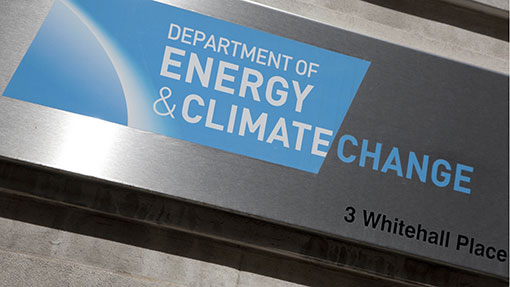Are you sitting comfortably? Ready for a shock? Right then – hard to believe though it is, it turns out that the Department for Energy And Climate Change (DECC) has made a fundamental error and it is going to cost you hundreds of pounds!
Actually if you’ve followed how DECC has functioned since its creation, I doubt if your surprised at all; although even by DECC standards this particular mistake is quite a belter.
One of DECC’s core responsibilities is to make fundamental judgements about the price of energy going forwards and then base extremely expensive policy decisions upon them. For years now the Secretary of State at DECC has been saying that the price of gas is only going one way – and that’s upwards and policy has been based on that premise.
Indeed, be it Ed Miliband, Chris Huhne or the office’s current incumbent, Ed Davey, the rhetoric behind the decisions made has been similar: they all insist that families and businesses in the United Kingdom will be better off, despite the ongoing plan to shift the country towards expensive renewable energy. This claim is based on the assumption that the price of fossil fuels can only go up as we “run out” of oil and gas supplies. As a result, energy prices will inevitably shoot up, making these very costly renewable sources of energy competitive in the future.
Even when it has been pointed out to them that Shale Gas in the USA has dramatically decreased energy prices, they have maintained that Europe and especially the UK is a much more complicated market, so the same effect wouldn’t happen here and prices of gas would continue to rise.
Then, last week, whilst there was rather a lot going on to dominate the news, DECC’s view remarkably and significantly changed.
In 2012, DECC projected that the price of gas would be 71.9p per therm and the price of Oil would be $123.50 per barrel in 2020. Last week those projections were revised downwards to gas costing 60.3p per therm and Oil $96.20 per barrel in 2020.
DECC’s old forecasts suggested the market price for electricity would rise from about £56 per megawatt-hour in 2015-16 to £64 in 2020-21. Its new forecast cuts that to £51 in 2015-16, rising to less than £54 in 2020-21.
Surely though, this drop in prices will be good news for hard pressed British consumers of energy in the future?
Well it would have been had DECC not been so hung up on delivering huge quantities of expensive and intermittent green energy that they guaranteed high levels of subsidy to various renewable sources of energy no matter what the “real” cost of energy might be.
Thanks to previously concluded deals and how the newish “Contracts for Difference (Cfd)” scheme works going forward, it is highly unlikely that British energy consumers will see the benefit of gas prices falling in their bills.
“Cfds” offer low carbon generators a guaranteed “strike” price for the electricity they produce, which in 2018/19 will be £140 per mWh for offshore wind and £90 per mWh for onshore wind. This means, based on DECC’s new estimate of energy costs, an onshore wind generator would receive nearly £40 per mWh of subsidy and an offshore wind generator would receive nearly £90 per mWh of subsidy.
So DECC has guaranteed a very high price for these types of renewable energy, which is directly being passed onto consumers. It has effectively created a false market which ensures more and more people fall into fuel poverty and that the energy bills of British businesses increase at a time when many of their overseas competitors, especially outside the EU, see their energy costs falling.
And just in case you still think that we have the right level of subsidies for this sector, please remember we have already hit the capacity target for on-shore wind for 2020. High subsidies have led to capacity targets being smashed as developers take advantage of the cash cow DECC has locked in the parlour ready to be milked.
It really is “Field of Dreams” economics – if you build it, subsidies will come. It is high time to dramatically cut the subsidy available to these intermittent sources of renewable energy.
As one commentator said on DECC’s announcement last week rather generously put it: “As we look at UK energy policy now, DECC has had the country make a massive financial gamble on the back of a prediction that was wholly unfounded and which has been obviously so for many years.”
Alas that gamble is going to cost the UK taypayers and energy users dearly for many years to come.

COMMENTS
Please let us know if you're having issues with commenting.